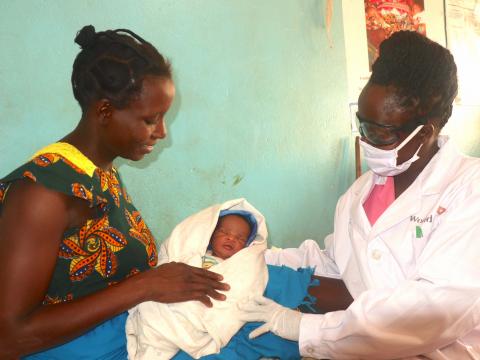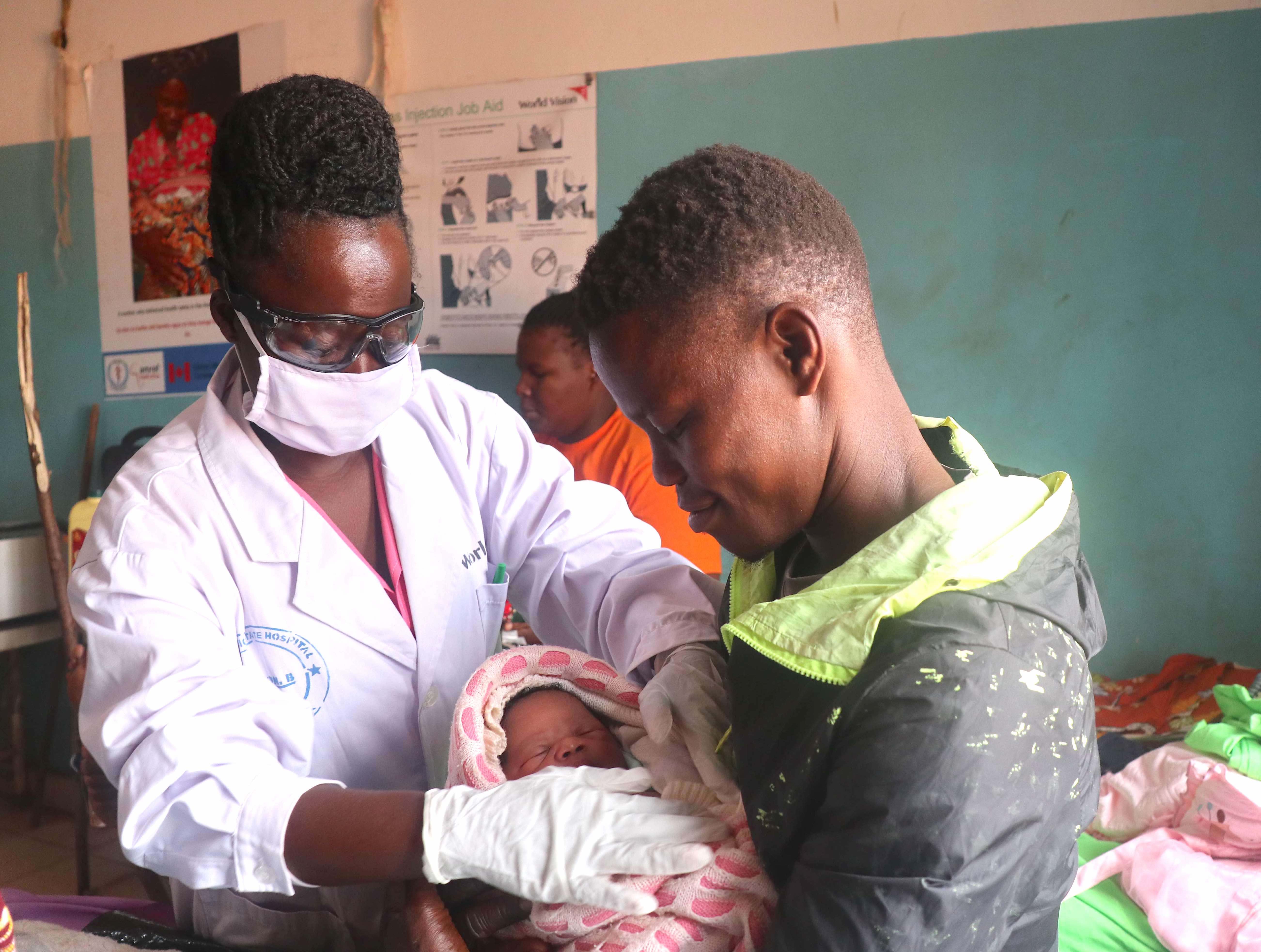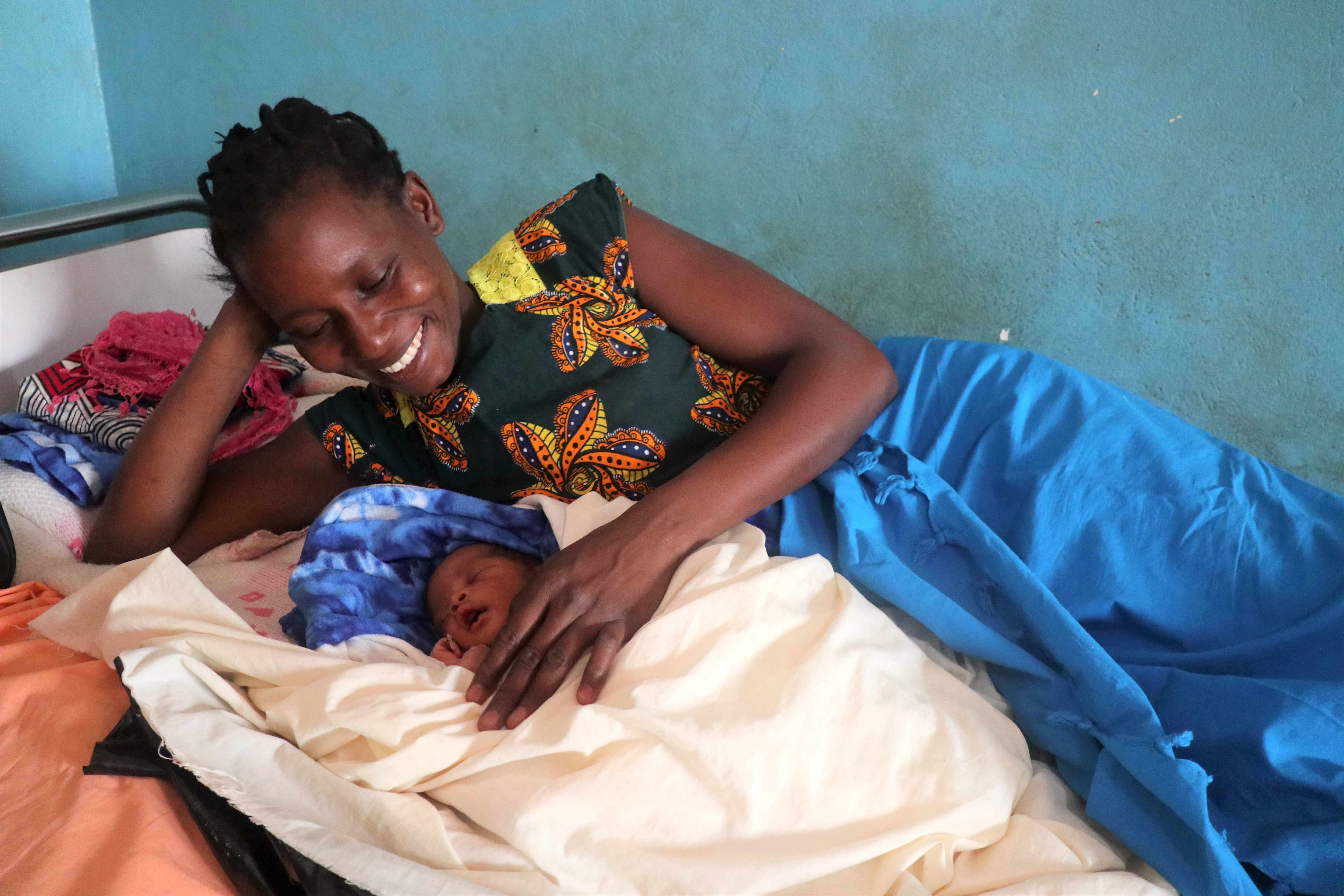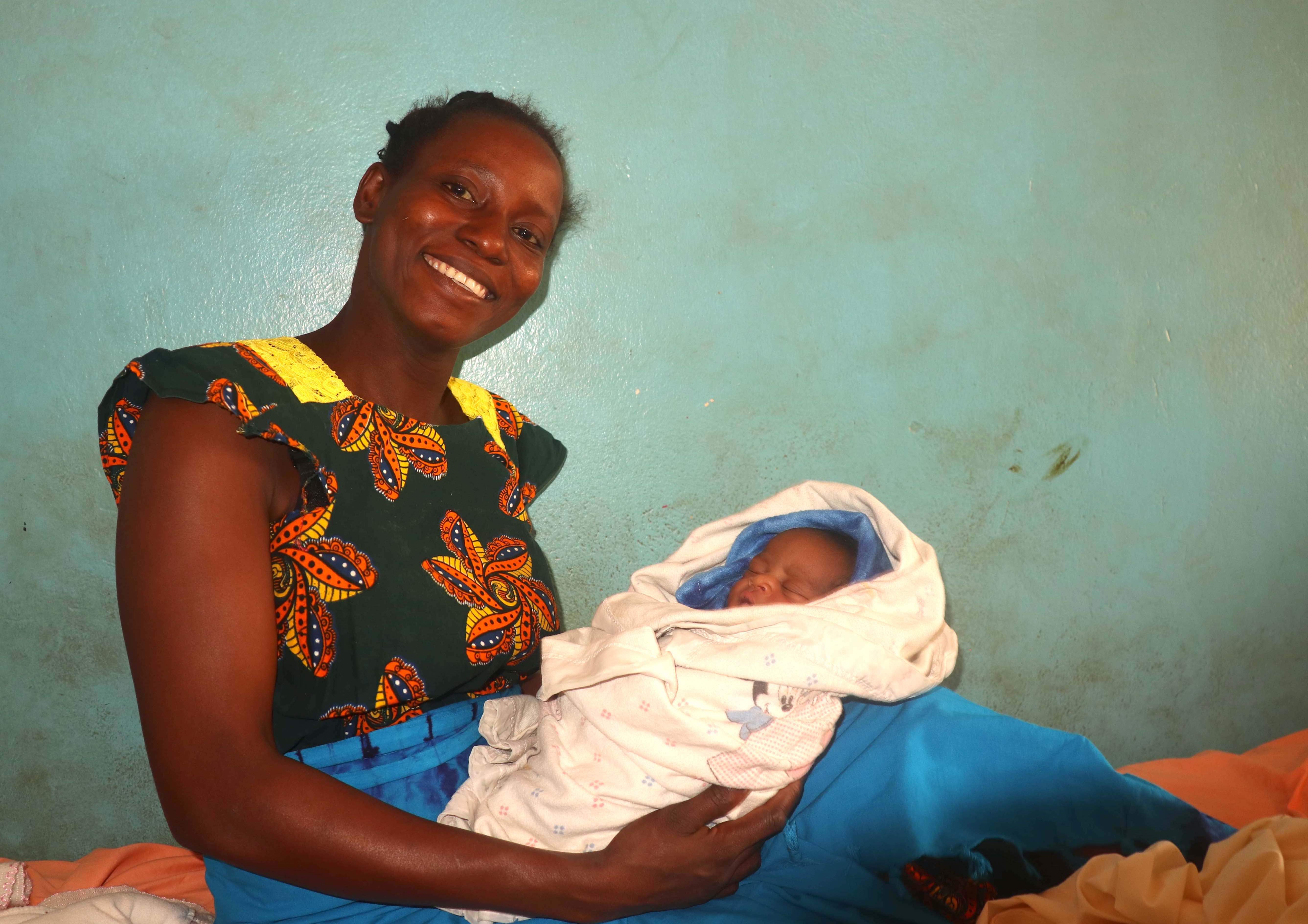Keeping babies safe as mothers in South Sudan’s Western Equatoria State leave traditional birthing behind

"Delivering a baby at home can be a life-threatening experience for many women in South Sudan,” shares Nama Samuel, 33.
The mother of nine had no idea of hospital delivery. Nama explains, “I delivered my six children at home with the traditional birth attendants. This is normal for us. I breastfed my five children two weeks after birth due to excess pain, and the sixth one I fainted due to serious bleeding (postpartum hemorrhage) that almost claimed my life.”
Nama swore never to have another child because she was scared of losing her life. However, two years down the road, she conceived again. She says, “I was stressed and often imagined that I would die and leave my children.”
But on the sixth month, the Boma health workers came to our community and shared health education with the mothers, specifically on safe delivery and child care,” Nama adds. She visited the hospital for antenatal care, for the first time and received counselling.
Related story: Boma health workers help save lives of 18,000 children from common diseases

She was also advised by the health workers to stop worrying as her anxiety could also affect the baby. The second time they checked, the baby was doing well. Nama says, “It gave me joy.”
Twelve health facilities were assisted by World Vision through the support of the Health Pooled Fund (HPF), serving an estimated 152,000 people in Western Equatoria State covering Yambio, Tambura, Nagero, Ezo, Maridi, Ibba, and Nzara counties.
With the presence of qualified and experienced skilled birth attendants and health workers, safe deliveries is now possible for mothers like Nama, who were among 128,854 women reached with the health campaign.
I earned more courage after my first experience at the hospital and made regular visits, not only deliver but to ensure that my children get other services such as vaccination, which my other six children did not get.
When the labor pains started and it was time for her to deliver, her husband Robert Thomas took her to Yambio State Hospital. “I was worried considering her previous deliveries. I was not ready to lose my wife. I kept praying for her and the baby”, Robert states.
After three hours, Nama successfully delivered her child, Joshua Moses. "I am grateful to the health workers for the health education done in the community that saved my life and that of my baby’s”, says Nama.
‘‘I earned more courage after my first experience at the hospital and made regular visits, not only deliver but to ensure that my children get other services such as vaccination, which my other six children did not get”, she adds.
Related story: Braving deadly canoe rides to save children from deadly diseases

Having their third child from the hospital, Robert says, “I feel happy seeing my wife and child healthy. The services are good at the hospital after delivery. My wife never experienced the pain as she used to do while delivering at home.” Nama is now urging women to stop the traditional practice and avail of the health facilities to avoid risking lives.
Stephen Epiu Leonard, World Vision’s Project Manager says, ‘‘World Vision is working with health facilities in Western Equatoria State for quality health care services through the support of HPF.”
Stephen adds, “The project helped improve facilities, trained the health workers, and provided essential medicines and medical supplies. Our focus now is to ensure that the community are able to access the quality services that have been established.”
“We organized community structures under the Boma Health Initiative to help us reach every village and encourage people to avail of the healthcare facilities. With these efforts, we have seen a tremendous improvement in many counties in Western Equatoria State,” he concludes.
Related story: Village by village, Boma health workers keep children safe from killer diseases

Story and photos by Scovia Faida Charles Duku, Communications Coordinator